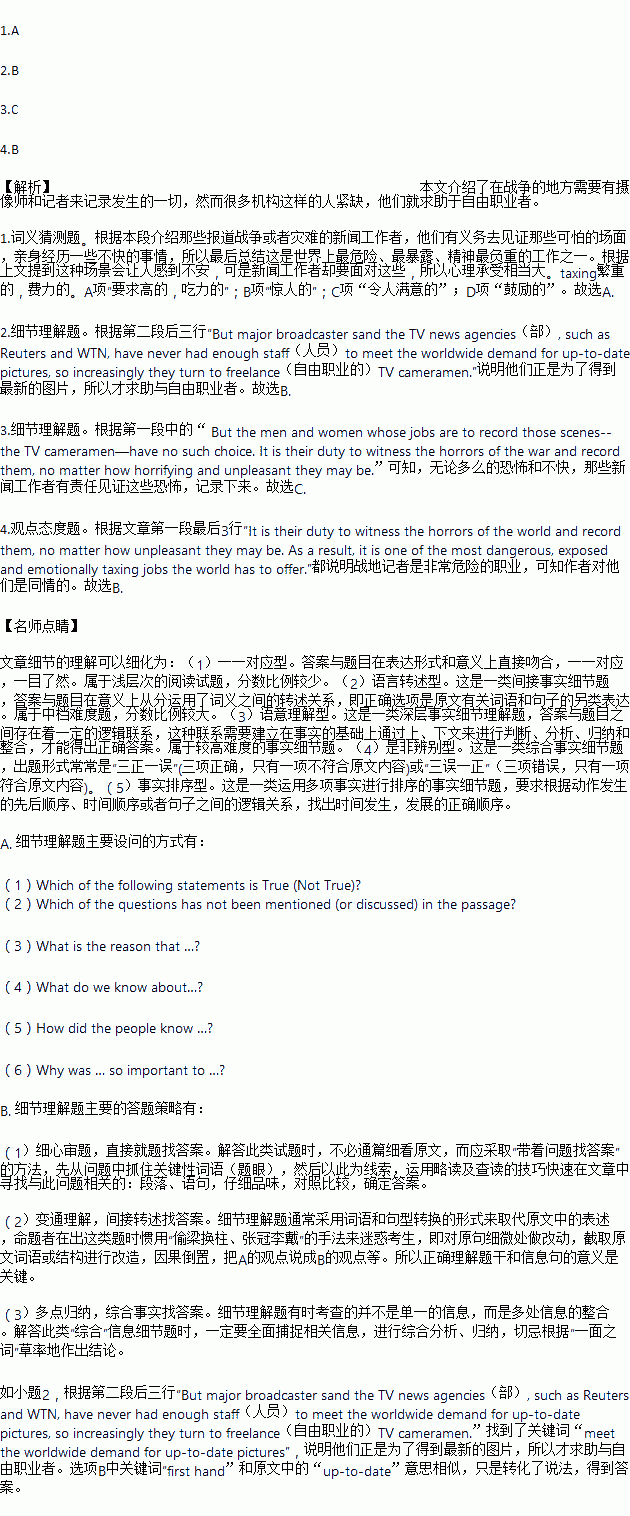题目内容
When TV news programs report wars or disasters, the editors rarely use the most horrifying pictures of dead or wounded victims because they don’t want to upset their viewers. Even so, viewers are usually warned in advance that they “may find some of these disturbing” so they can look away if they choose. But the men and women whose jobs are to record those scenes--the TV cameramen—have no such choice. It is their duty to witness the horrors of the war and record them, no matter how horrifying and unpleasant they may be. Consequently, it is one of the most dangerous, exposed and emotionally taxing job that the world offers.
Today, the demand for their work is rising. The explosion of satellite broadcasting and 24 hour news in recent years have created an almost insatiable(无法满足的)demand for TV information. But major broadcasters and the TV news agencies--such as Reuters and WTN---have never had enough staff to meet the world wide demand for up-to-date pictures, so increasingly they turn to “Freelance” TV cameramen.
These freelance cameramen are independent operators tied to no particular organization. They will work for any company which hires them for just a few hours or for several weeks in a war zone. But if a freelance cameraman is injured in the course of the job, the TV company is not responsible for him. The freelancer must survive on his own.
“TV will always need hard, vivid moving pictures which are fresh, but these companies feel uncomfortable with large numbers of employees on their books,” explains Nik Growing, once foreign editor for Britain’s Channel 4 News and now a BBC news presenter.
“By hiring freelancers, they can buy in the skills they need only when they need them. It also enables them to contract out the risk,” he says.
1.The underlined word “taxing” in Para 1 most probably means_________.
A. demanding B. striking
C. satisfying D. encouraging
2.TV news agencies turn to freelance cameramen in order to _______.
A. save expenses and avoid risk
B. get first hand information and pictures
C. look for pictures that are of fine qualities
D. buy the horrifying pictures they need
3.From the passage we can know that _______.
A. TV cameramen should be given better choice of work
B. TV cameramen are being challenged by the freelancers
C. TV cameramen have to witness disasters and killing whether they like them or not
D. TV cameramen have to contract out the risks for their companies
4.The author of the passage shows his _______ the freelance cameramen.
A. respect for B. sympathy to
C. ignorance of D. admiration to

